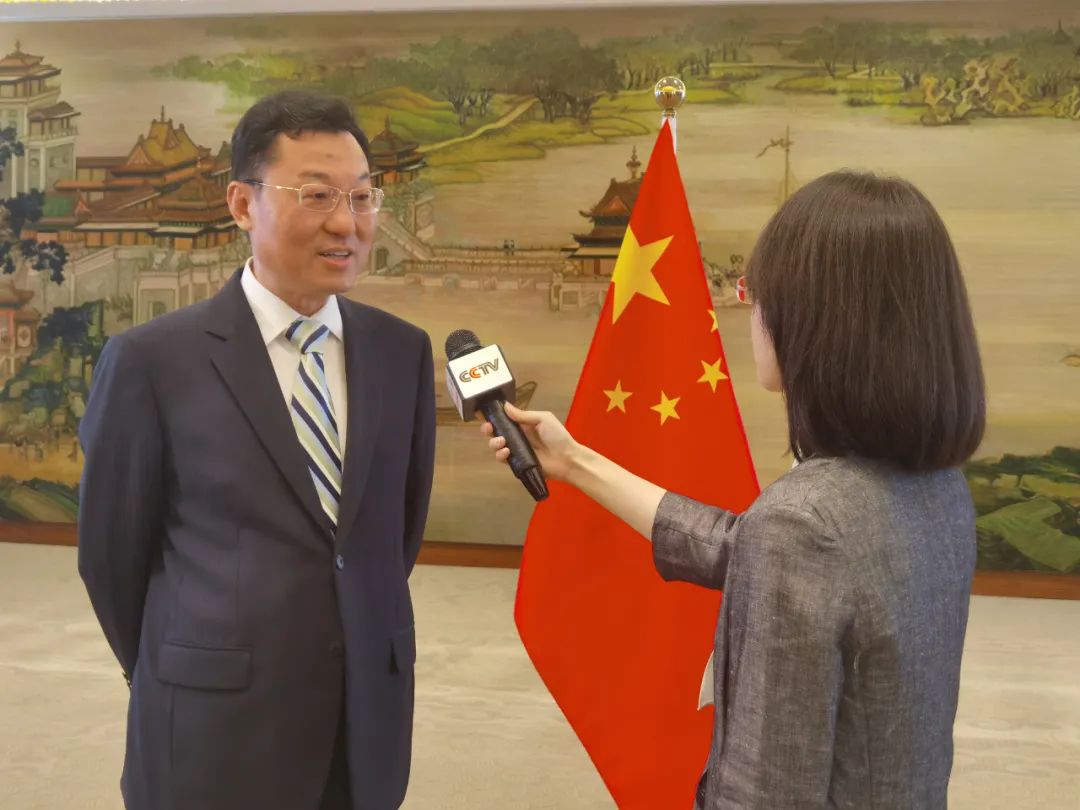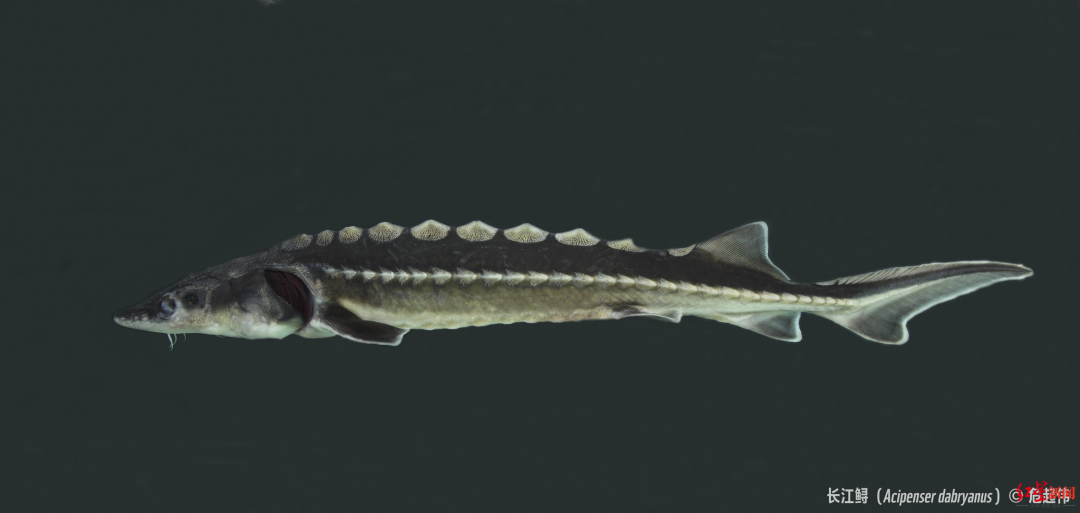Vice Minister Xie Feng attended the 40th Anniversary International Seminar of the United Nations Marine Law and accepted an exclusive interview with CCTV
Author:Division of the Treaty of the Time:2022.09.03
On September 1, Vice Minister Xie Feng attended the 40th Anniversary International Seminar of the United Nations Marine Law Convention and accepted an exclusive interview with CCTV.

1. Q: Please briefly introduce the purpose of this meeting and the situation of this international seminar?
At present, the centennial changes have accelerated, and global marine governance has faced many new problems. As a contract between the Convention, the Chinese side held an international seminar on the occasion of the 40th anniversary of the opening of the Convention. It aims to benefit and benefit, review the history of the Convention on the Convention, revisit the principle of the purpose of the Convention, and promote global marine cooperation governance.
More than 200 government officials, representatives of international organizations and experts and scholars from various countries attended the meeting. The State Councilor of Wang Yi delivered an important speech to explain the attitude of China on the Convention on the Convention, advocating all parties to adhere to destiny and promote the sustainable development of the ocean; adhere to dialogue and negotiation, maintain ocean peace and peace; adhere to international cooperation, protect the marine ecological environment ; Adhere to the rule of law and promote the new journey of marine governance. The United Nations Deputy Secretary -General Suarez gave the opening speech to the meeting, encouraging new challenges such as marine biological diversity and marine garbage pollution with the spirit of the Convention. At the meeting, I also made a keynote report on China's comprehensive and goodwill, and actively contributed the relevant situation of global marine cooperation governance. The parties to the meeting will discuss in -depth discussions on the 40 years of achievements and contributions of the Convention, and discuss the issues of marine law at the forefront of the marine law to discuss the way of cooperation and governance of marine cooperation.
Question: What role has the Convention play in the past 40 years, what kind of problems exist, and how do you think of the future of the Convention?
The Convention is a comprehensive legal document in the marine field. It takes into account the interests of different countries such as coastal countries, ship flags, and inland countries. It has played an important role in understanding the ocean, protecting the ocean and sustainable use of the ocean. The International Primary Administration of the Convention of the Convention, the three major institutions of the Mainland Frame Commission, and the International Oceanic Law Court has become an important mechanism for global marine governance, providing a beneficial platform for discussing and solving marine issues.
At the same time, the Convention did not exhaust all the issues of marine law. Historical rights, the distant sea islands and other matters continued to be adjusted by the usual international law. When the Convention was introduced 40 years ago, problems such as rising sea levels, ocean acidification, and unmanned ships have not yet been prominent. The Convention has no specific regulations on new problems. During the implementation, there are also the cases of the Convention's interpretation and even abuse of procedures, and the relevant practices will harm the seriousness and authority of the Convention.
The Convention is a legal framework that is open and tolerant and keeps pace with the times. The Convention clearly states that the "unsatisfactory matters should continue to be based on the rules and principles of general international law." After the "Convention" was promulgated, two execution agreements on international sea floor and fish species have been formulated. At present, all parties are negotiating an international agreement on marine biological diversity. As long as all parties adhere to the spirit of the Convention and continue to enrich the International Oceanic Law, including the Convention, the Convention will continue to play an important role in the future global marine governance.
Question: How do China, as a contract between the Convention on the Convention, think of the Convention's role in resolving the dispute in the South China Sea?
Answer: On the issue of marine disputes, China has always advocated negotiation and negotiation and negotiation based on the direct respect of the affairs and the basis of international law. The most effective way.
Regarding the role of the Convention on solving the dispute between the South China Sea, I want to emphasize two points: First, related disputes not only involve the marine planning, but also territorial issues. To solve territorial issues, it is mainly based on international law such as the United Nations Charter; resolving marine disputes, in addition to the Convention, it is also necessary to consider relevant treaties and international laws. The second "Convention" dispute resolution mechanism respects the voluntary choice of disputes as the country. In 2006, China solemnly stated in accordance with the Convention, and clarified that the Convention Covenant's compulsory procedure was not applicable. At the same time, China and neighbors have always had an important consensus to resolve disputes through negotiations.
In 2000, China and Vietnam negotiated and signed the Beibu Gulf boundary agreement. Before the relevant dispute was completely resolved, China was committed to the spirit of the Convention in accordance with the spirit of the Convention, and made a temporary arrangement with the related countries on the sea -related issues. At present, it has established a bilateral marine affairs consultation mechanism with the Philippines and Vietnam. Essence China adheres to the neighbors as goodness and is accompanied by neighbors. It will continue to work with relevant countries. In accordance with the dual -track ideas proposed by China and ASEAN countries, it will promote the exchanges and pragmatic cooperation of maritime dialogue, properly control differences, and promote the prosperity and development of the South China Sea and the region. At the same time, we will continue to take the "Declaration of the South China Sea" as the guidance to accelerate the formulation of effective, full of substantial content, and the "South China Sea Conduct", which is in line with the International Law, which is in line with the Convention. Institutional guarantee.
Question: What work did China do and implement the "Convention", and how will it further promote the role of the Convention in the future?
Answer: China has always been an active participant, builder and contributor of the Convention and its mechanism.
At present, the impact of the century -old changes with the century epidemic has become more prominent in the environmental protection and sustainable development of marine and sustainable development. China is willing to adhere to the principle of the purpose of the Convention with all parties, promote the true multilateral spirit of the Convention, from the perspective of taking into account the interests of different countries and the protection of the common interests of all human beings. The ability of governance, goodwill, comprehensive, complete, and accurately explained and applied to the Convention, opposed power, is righteous, opposed to selectively apply the Convention, maintain and promote fair and just international marine order, and improve global marine governance. 5. Q: The United States is not a member of the Convention, but it has accused China of violating the Convention on various occasions and continued to increase the "freedom of navigation" in the South China Sea to challenge China's rights. What do you think about this?
Answer: As early as the Convention negotiations, the United States ignored the concerns of developing countries and stubbornly opposed the international submarine and its resources that belonged to the joint property of human beings. Essence In the negotiations, the exclusive economic zone system proposed by developing countries in the negotiations has advocated the world's largest exclusive economic zone seas after the "Convention" was introduced. The United States has not approved the "Convention" so far, emphasizing that it is not limited by the "Convention" procedure, but not to advocate the Convention's supremacy, use the Convention to tell things, and turn the Convention into a tool to discredit and curb the suppression of other countries. Meimei just wants to enjoy the "Convention" system bonus, and is unwilling to bear the obligation of the Convention, saying one set, and is not qualified to talk about the Convention at all.
The true purpose of the US side to make the so -called "freedom of navigation" is to resist the exclusive economic zone of the Convention, maintain the US marine hegemony, and allow the US warships to continue to be overbearing in the ocean. In recent years, the US wicked people sued first, hit a rake, and used the guise of "freedom of navigation" to challenge the claims of the maritime of other countries. There was no international law, including the basis of marine law. China's position in the South China Sea has a sufficient historical and legal basis, and there are no problems in the past, present, and future of the South China Sea. The United States challenges the claims of other countries by military force, threatens the security and marine rights and interests of other countries, and violates general international law principles such as not using force or threatening with force. Resolutely opposed the international community.
- END -
Just announced that "wild extinction" suddenly appeared?

The supply of sufficient price for "Innocence" Lanzhou rice noodle oil and other items is generally stable
New Gansu Client July 19 (New Gansu · Daily Gansu.com reporter Wang Yuchen) Reporter learned from the press conference on the prevention and control of the new crown pneumonia epidemic in Lanzhou (tw